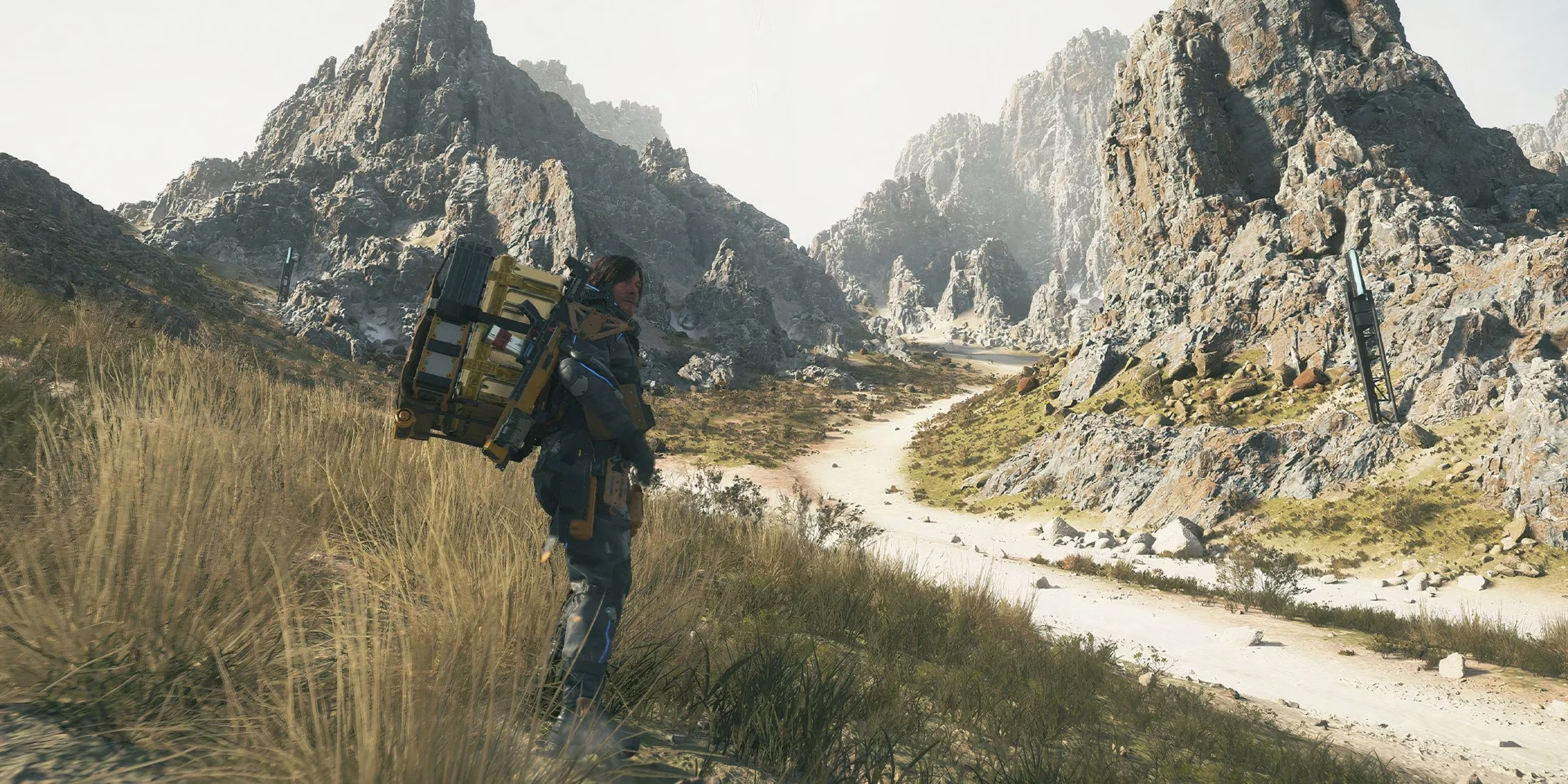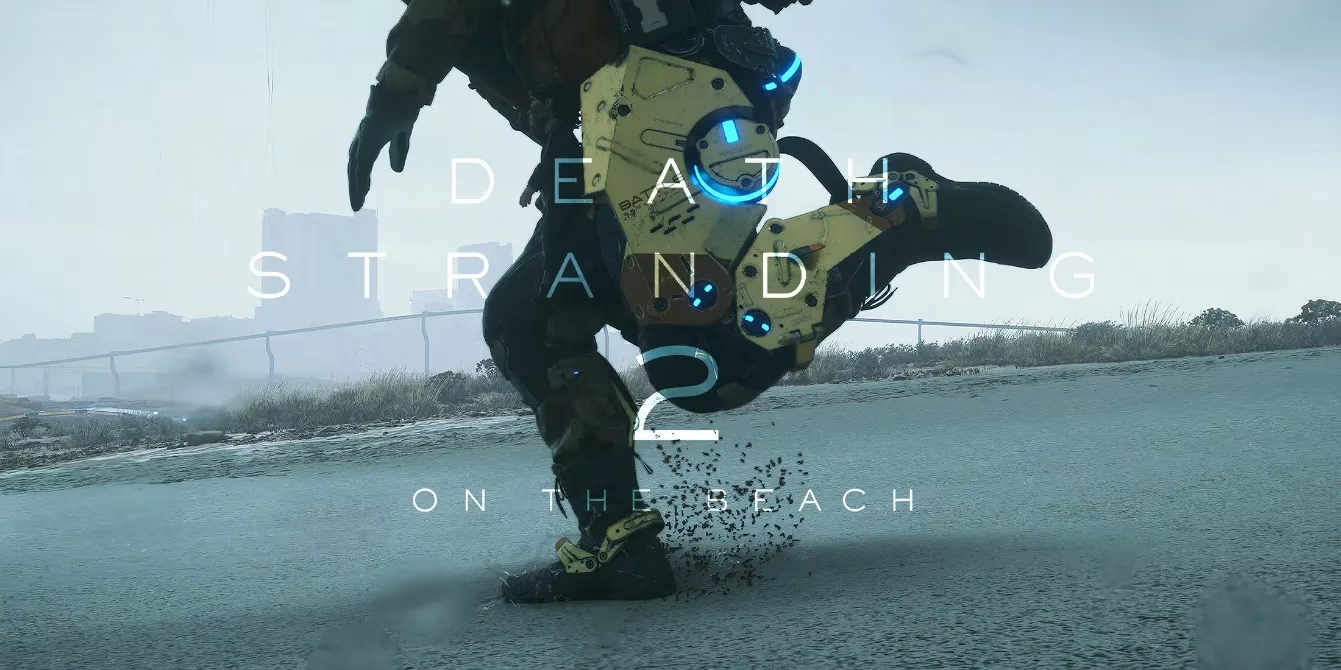Six years after the original release and three years following the announcement at the 2022 Game Awards, Death Stranding 2: On the Beach has finally arrived in 2025, offering players a chance to reconnect with Kojima's bizarre post-apocalyptic world. While many players are eagerly jumping into the sequel with all its new features and connectivity options, there's a compelling case for experiencing this masterpiece in its most stripped-down form: completely offline and without using a single vehicle.
The Road Less Traveled
The original Death Stranding became known for its unconventional gameplay loop - literally walking across vast landscapes while delivering packages. Many players embraced the game's asynchronous multiplayer, which allowed structures built by others to appear in their world, making journeys considerably easier. But what happens when you remove that safety net entirely?

This isn't about making the game artificially difficult - it's about experiencing Death Stranding 2 as it was arguably meant to be felt: a solitary journey through a hostile world where every step matters and every decision has weight. Playing offline means no convenient bridges appearing just when you need them, no pre-built charging stations, and certainly no roads paved by the collective effort of the community.
Embracing the Weight
Death Stranding 2 has doubled down on accessibility compared to its predecessor. The game now features more vehicles than ever, including an extensive monorail system for mass cargo transport and improved fast travel options. While these additions make the game more approachable, they fundamentally alter the core experience that made the original so memorable.
When you choose to play offline and forgo vehicles entirely, something magical happens. The world becomes more resistant, more challenging, but infinitely more immersive. Every journey requires careful planning:
-
Which route will be safest?
-
How much equipment can I realistically carry?
-
Do I have enough repair spray if my cargo gets damaged?
-
What if BTs appear in that valley?
These questions create a level of engagement that simply doesn't exist when you can hop in a Tri-Cruiser or fast travel between knots. The game transforms from what critics once dismissed as a "walking simulator" into a profound meditation on connection, isolation, and perseverance.
The Meditative Power of Walking
In our hyper-connected digital age, we've become addicted to constant stimulation. Death Stranding 2, when played offline and on foot, offers something increasingly rare: moments of genuine quiet. There's something almost revolutionary about a AAA game in 2025 that dares to bore you occasionally.
Those long walks across stunning landscapes, with nothing but the sound of Sam's footsteps and the occasional haunting Woodkid track when approaching a destination, create space for thought. The mind wanders. Ideas form. Sometimes you just exist in the moment, taking in the meticulously crafted world around you.

This deliberate pace makes every achievement feel earned. Reaching a prepper outpost after a grueling trek across mountains and BT territory delivers a satisfaction that simply cannot be replicated when you've zoomed there in a vehicle. The cargo on your back feels like it has actual weight - both physically and metaphorically.
A Personal Connection to the World
When playing offline and without vehicles, you develop an intimate knowledge of Death Stranding 2's world. You remember the exact path through that rocky pass, the safest way to cross that river, the perfect spot to rest before tackling the next incline. The landscape becomes more than just scenery - it becomes an adversary, a companion, and sometimes even a refuge.
This deeper connection extends to the game's themes. Death Stranding has always been about rebuilding connections in a fractured world. Ironically, by disconnecting from other players and slowing your pace to a walk, you might better appreciate what Kojima is trying to say about human connection and isolation.
Is there something profoundly meaningful about struggling alone through this world, only to eventually reconnect with others? Perhaps that's the point - to feel the weight of isolation before experiencing the joy of connection.
The Triumph of Inconvenience
In an era where games increasingly streamline experiences to maximize engagement and minimize frustration, there's something rebellious about embracing inconvenience. Death Stranding 2 gives players the tools to make their journey easier, but it never forces you to use them.
By choosing the harder path - the slower, more solitary route - you're engaging with the game on a fundamentally different level. You're not just playing Death Stranding 2; you're experiencing it as a deliberate practice, almost like a digital pilgrimage.
The game becomes less about completing deliveries efficiently and more about the journey itself. Isn't that what Kojima was trying to say all along?
FAQ: The Solitary Porter's Guide
Isn't playing offline just making the game unnecessarily difficult?
It's not about difficulty - it's about immersion. The challenge is simply a byproduct of a more authentic experience. Would you rather zip through a beautiful landscape or truly experience every inch of it?
Do I have to avoid vehicles completely to get this experience?
The beauty of Death Stranding 2 is that you can set your own boundaries. Maybe you allow yourself emergency vehicle use, or perhaps you only walk specific routes. The important thing is intentionality in how you engage with the game.
Won't I miss out on the social commentary by playing offline?
Surprisingly, many players report that they better understood the game's themes about connection precisely because they experienced true isolation first. How can you appreciate connection without first understanding disconnection?
How much longer does the game take when played this way?
Significantly longer - perhaps 2-3 times the normal completion time. But isn't that the point? In a world obsessed with efficiency, Death Stranding 2 asks: what's the rush?
Would Kojima approve of playing the game this way?
Who can truly know the mind of Kojima? But a game that's fundamentally about player choice and finding your own path through a broken world seems perfectly aligned with choosing how you want to experience that journey. Perhaps the true Death Stranding experience is whatever feels most meaningful to you.
So, porter - are you ready to shoulder your cargo and walk the long road alone? The journey will be harder, longer, and lonelier. But it might just be the most profound gaming experience you'll have in 2025.
